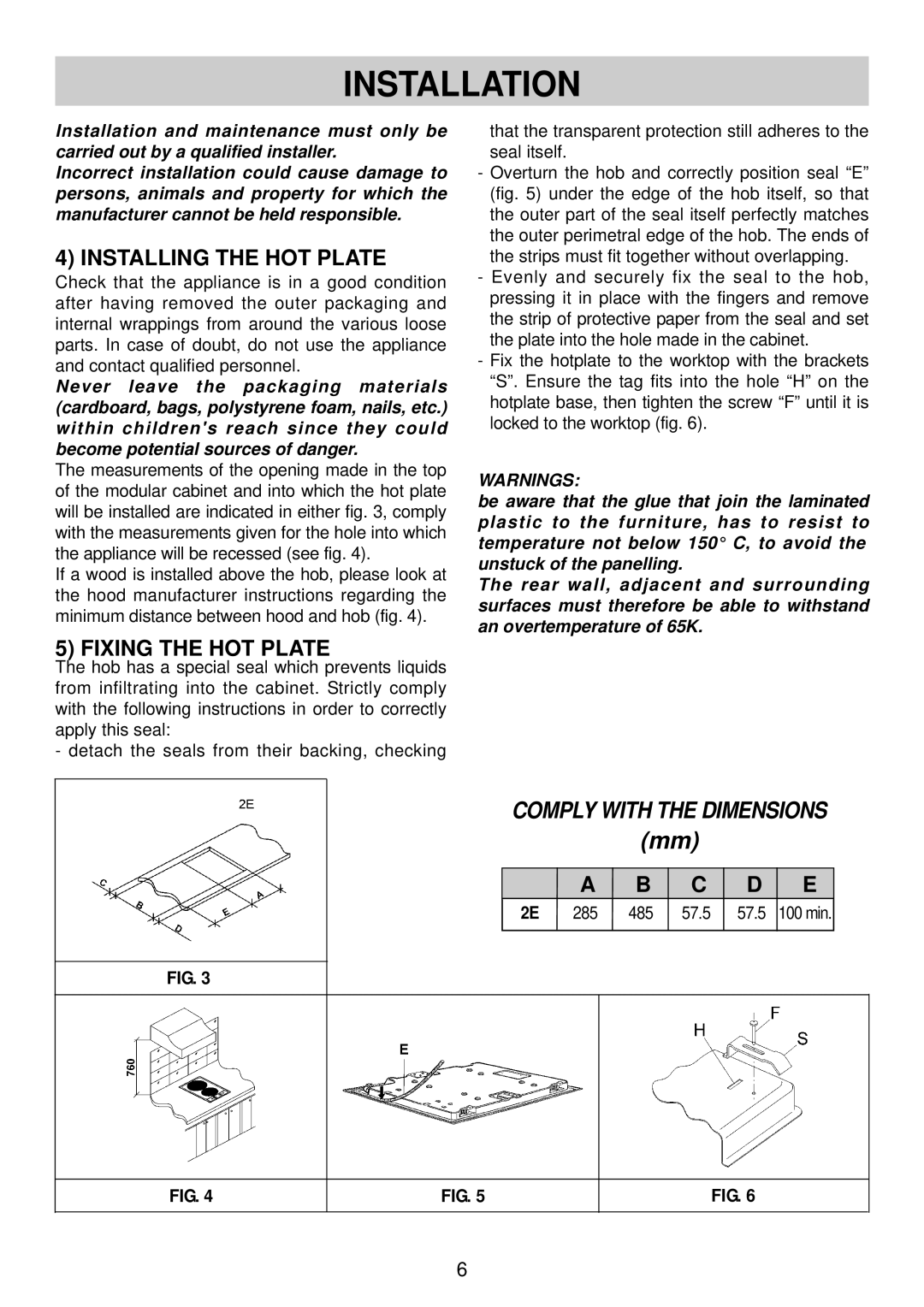
INSTALLATION
Installation and maintenance must only be carried out by a qualified installer.
Incorrect installation could cause damage to persons, animals and property for which the manufacturer cannot be held responsible.
4) INSTALLING THE HOT PLATE
Check that the appliance is in a good condition after having removed the outer packaging and internal wrappings from around the various loose parts. In case of doubt, do not use the appliance and contact qualified personnel.
Never leave the packaging materials (cardboard, bags, polystyrene foam, nails, etc.) within children's reach since they could become potential sources of danger.
The measurements of the opening made in the top of the modular cabinet and into which the hot plate will be installed are indicated in either fig. 3, comply with the measurements given for the hole into which the appliance will be recessed (see fig. 4).
If a wood is installed above the hob, please look at the hood manufacturer instructions regarding the minimum distance between hood and hob (fig. 4).
5) FIXING THE HOT PLATE
The hob has a special seal which prevents liquids from infiltrating into the cabinet. Strictly comply with the following instructions in order to correctly apply this seal:
- detach the seals from their backing, checking
that the transparent protection still adheres to the seal itself.
-Overturn the hob and correctly position seal “E” (fig. 5) under the edge of the hob itself, so that the outer part of the seal itself perfectly matches the outer perimetral edge of the hob. The ends of the strips must fit together without overlapping.
-Evenly and securely fix the seal to the hob, pressing it in place with the fingers and remove the strip of protective paper from the seal and set the plate into the hole made in the cabinet.
-Fix the hotplate to the worktop with the brackets “S”. Ensure the tag fits into the hole “H” on the hotplate base, then tighten the screw “F” until it is locked to the worktop (fig. 6).
WARNINGS:
be aware that the glue that join the laminated plastic to the furniture, has to resist to temperature not below 150° C, to avoid the unstuck of the panelling.
The rear wall, adjacent and surrounding surfaces must therefore be able to withstand an overtemperature of 65K.
COMPLY WITH THE DIMENSIONS
(mm)
| A | B | C | D | E |
2E | 285 | 485 | 57.5 | 57.5 | 100 min. |
|
|
|
|
|
|
FIG. 3
FIG. 4
FIG. 5
FIG. 6
6
